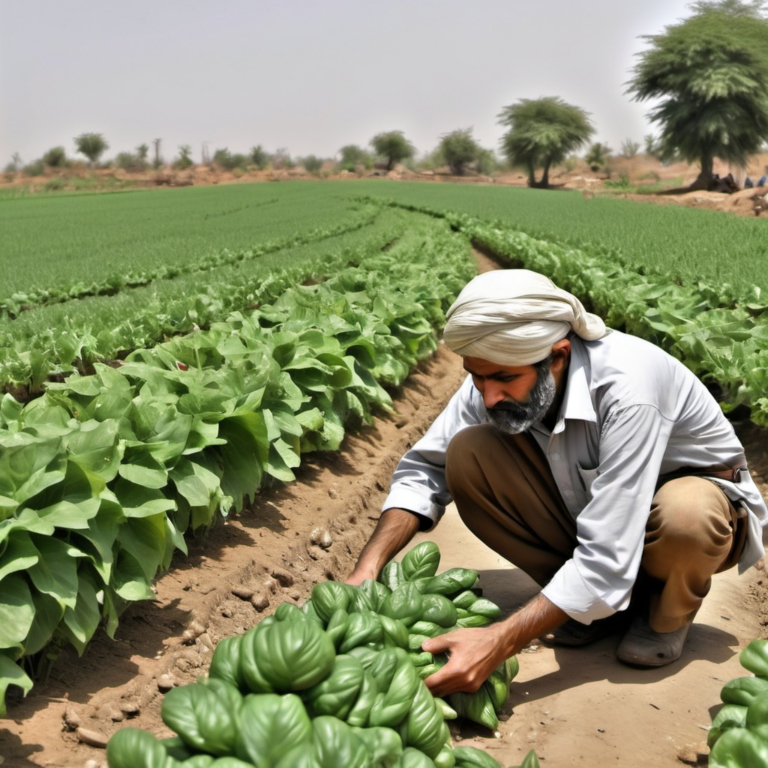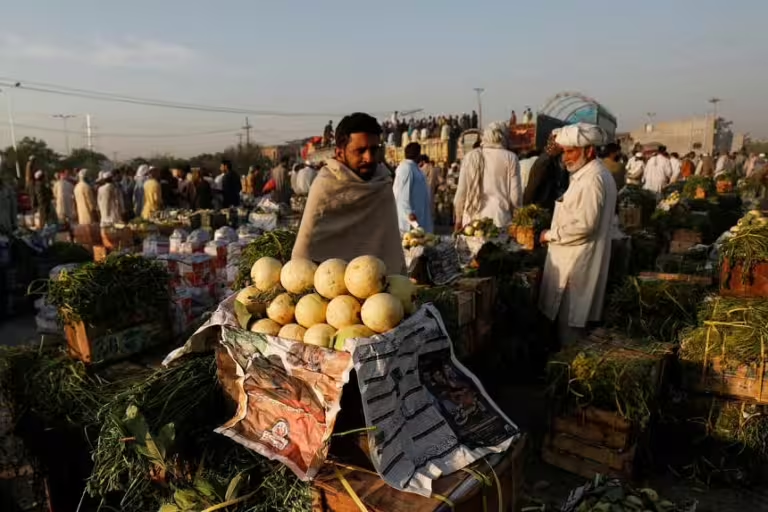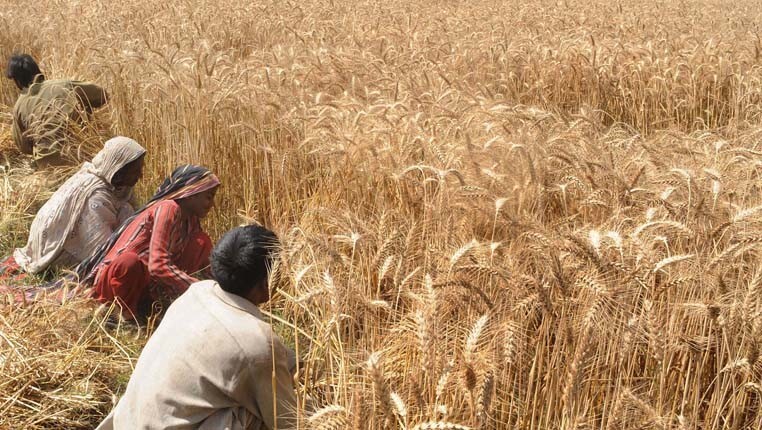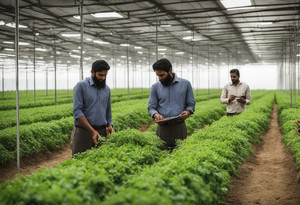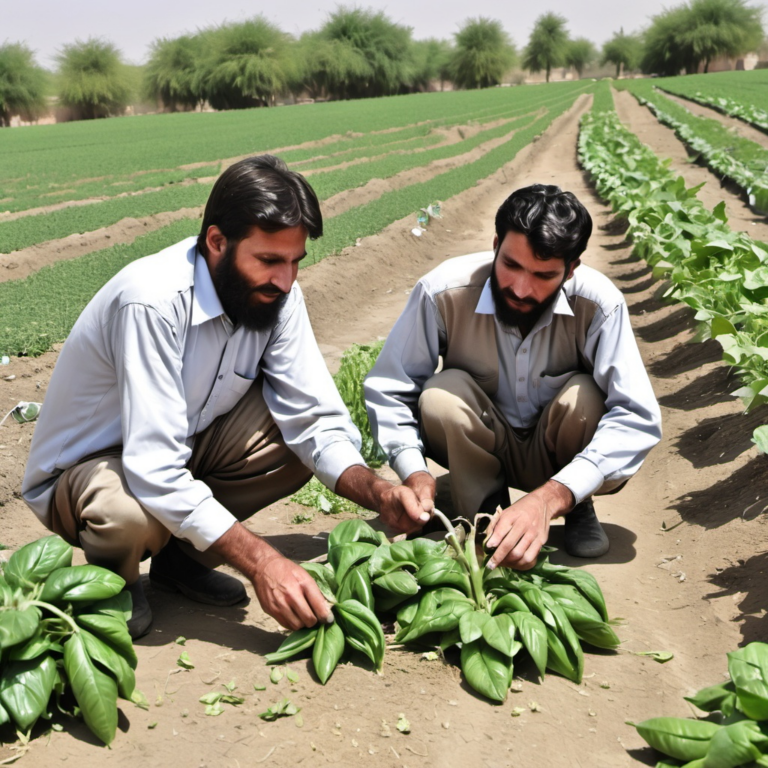“Empowering the Future: The Role of Youth in Transforming Pakistan’s Agriculture into a Thriving Industry”
The role of youth in Pakistan’s agriculture is pivotal to transforming and modernizing the sector. Their participation not only brings innovation but also helps in adopting advanced technologies that enhance productivity. Here is a detailed exploration of how youth can contribute and the changes that may occur if agriculture is granted the status of an industry:
1. Education and Training
Youth play a vital role in revitalizing agriculture through education and training. By equipping young farmers with modern agricultural techniques, we can ensure that they understand crop management, soil conservation, and sustainable farming practices. Agricultural universities and technical training institutes should offer programs that focus on these modern practices. When youth are educated in the latest methodologies, they can experiment with new crops, techniques, and farming systems, which leads to higher yields and better-quality produce.
2. Utilization of Technology
The integration of technology in agriculture is essential, and the youth, being tech-savvy, are better positioned to adopt and utilize these tools. Precision agriculture, drones for crop monitoring, automated irrigation systems, and data analytics can help in making agriculture more efficient. When youth are introduced to and trained in these technologies, they can optimize farming practices, reduce wastage, and increase output. This modernization is crucial for enhancing food security and meeting the demands of a growing population.
3. Opportunities for Employment and Entrepreneurship
Agriculture offers vast opportunities for employment, especially if transformed into a structured industry. Youth can find opportunities not just as farmers but as agribusiness entrepreneurs. Whether it’s organic farming, agritech startups, or value-added services like food processing and packaging, the agriculture sector has immense potential for creating sustainable employment. By recognizing agriculture as a formal industry, youth can access loans, investments, and mentorship programs designed to help them build their own businesses within the agricultural value chain.
4. Financial Incentives and Support
To encourage youth participation in agriculture, financial incentives such as grants, loans, and subsidies are essential. Governments and financial institutions should offer special packages for young farmers, making it easier for them to invest in modern equipment, seeds, and infrastructure. By easing access to capital, young entrepreneurs can enter the agriculture sector and contribute to the nation’s economy.
5. Industrialization of Agriculture
Granting agriculture, the status of an industry can has far-reaching impacts. Once agriculture is treated as an industry, it becomes more structured, attracting investments, improving governance, and introducing regulatory frameworks that protect farmers. Youth will then be able to view farming not as a subsistence activity but as a professional, profit-making enterprise. The industrialization of agriculture could also lead to the establishment of supply chains, logistics networks, and cold storage facilities, all of which are crucial for reducing post-harvest losses and ensuring that produce reaches markets efficiently.
6. Role of Agri-Tech Startups
Youth, with their innovative ideas, can contribute significantly through agri-tech startups. These startups can focus on solving local problems like water scarcity, pest control, and efficient use of fertilizers by creating digital platforms or apps that provide real-time data and insights to farmers. Youth-driven innovation can revolutionize the way agriculture is done, making it smarter and more adaptive to challenges posed by climate change.
7. Sustainability and Green Practices
The younger generation tends to be more conscious of environmental sustainability. By engaging youth in agriculture, there is a greater likelihood of adopting eco-friendly farming techniques such as organic farming, permaculture, and regenerative agriculture. These practices not only ensure long-term soil health but also minimize the environmental impact of farming activities, helping Pakistan meet its climate goals.
8. Government Policies and Initiatives
Government support is crucial in making agriculture a lucrative career for youth. Initiatives like subsidized loans for young farmers, tax exemptions for agriculture-related startups, and infrastructural support can go a long way in making agriculture an attractive sector. Additionally, public-private partnerships could be formed to develop training programs, incubation centers, and research facilities focusing on modern agricultural practices.
9. Youth as Agents of Change
Youth are natural agents of change, and when they are involved in agriculture, they can challenge outdated methods and introduce innovative ideas that can lead to modernization. Their involvement can improve social attitudes towards agriculture, changing it from a labor-intensive, low-income profession into a dynamic and profitable industry.
10. Increased Export Potential
With the youth’s involvement and the industrialization of agriculture, Pakistan can focus on increasing its agricultural exports. Young entrepreneurs can explore international markets, understand global agricultural standards, and establish Pakistan as a competitive player in the international market. The diversification of crops, value-added products, and better post-harvest handling will help increase the country’s export potential, thus boosting the economy.
The role of youth in agriculture cannot be overstated. They bring fresh energy, creativity, and a modern outlook that is essential for revitalizing Pakistan’s agriculture sector. By treating agriculture as an industry, providing financial and educational support, and introducing technological advancements, Pakistan can transform its agricultural sector into a thriving, profitable, and sustainable industry. This not only ensures food security for the nation but also opens up new economic avenues, empowering the youth to be the driving force behind a new agricultural revolution in Pakistan.
The future of Pakistan’s agriculture lies in the hands of its youth, and with the right guidance, resources, and opportunities, they can lead the sector towards unprecedented growth and sustainability.


